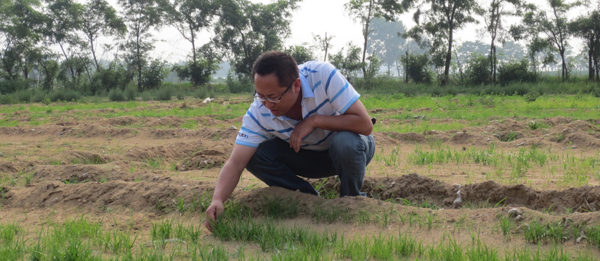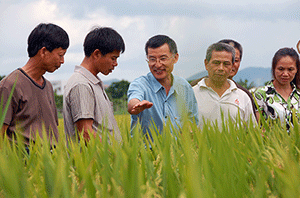Tag: China

Technology and Talent Are Key to China’s Agricultural Modernisation Drive
Asia: Technology and talent has the potential to intensify agricultural production in China.
Read MoreProfessor Weifeng Zhang Wins IFA Norman Borlaug Award
Asia: Professor Weifeng Zhang, the winner of the 2018 IFA Norman Borlaug Award, has been a driving force in China's agricultural revolution.
Read MoreRice Nutrition Management Pioneer Dr. Xuhua Zhong Wins IFA Norman Borlaug Award
Asia: The International Fertilizer Industry Association (IFA) has awarded crop physiologist Dr. Xuhua Zhong this year’s IFA Norman Borlaug Award for his achievements in rice nutrition management in China. Dr. Zhong, head of the Crop Physiology and Ecology Laboratory at the Guangdong Academy of Agricultural Sciences, developed the ‘three controls’ technology. The process incorporates control of nitrogen (N) input, control of […]
Read MoreHarnessing Technology for Food Security
Asia: Ensuring food security in China, the world’s most populous nation, requires concerted efforts by the central and local governments as well as the private sector. From raising farm productivity to improving food safety, steering China’s millions of farmers towards agricultural technology is key in achieving self-sufficiency. Since 2003, CropLife China has joined with the National Agri-Technical […]
Read More


